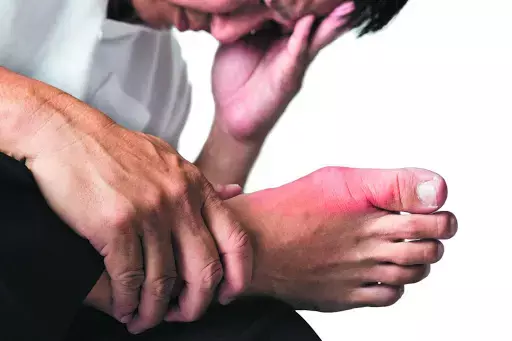- Home
- Medical news & Guidelines
- Anesthesiology
- Cardiology and CTVS
- Critical Care
- Dentistry
- Dermatology
- Diabetes and Endocrinology
- ENT
- Gastroenterology
- Medicine
- Nephrology
- Neurology
- Obstretics-Gynaecology
- Oncology
- Ophthalmology
- Orthopaedics
- Pediatrics-Neonatology
- Psychiatry
- Pulmonology
- Radiology
- Surgery
- Urology
- Laboratory Medicine
- Diet
- Nursing
- Paramedical
- Physiotherapy
- Health news
- Fact Check
- Bone Health Fact Check
- Brain Health Fact Check
- Cancer Related Fact Check
- Child Care Fact Check
- Dental and oral health fact check
- Diabetes and metabolic health fact check
- Diet and Nutrition Fact Check
- Eye and ENT Care Fact Check
- Fitness fact check
- Gut health fact check
- Heart health fact check
- Kidney health fact check
- Medical education fact check
- Men's health fact check
- Respiratory fact check
- Skin and hair care fact check
- Vaccine and Immunization fact check
- Women's health fact check
- AYUSH
- State News
- Andaman and Nicobar Islands
- Andhra Pradesh
- Arunachal Pradesh
- Assam
- Bihar
- Chandigarh
- Chattisgarh
- Dadra and Nagar Haveli
- Daman and Diu
- Delhi
- Goa
- Gujarat
- Haryana
- Himachal Pradesh
- Jammu & Kashmir
- Jharkhand
- Karnataka
- Kerala
- Ladakh
- Lakshadweep
- Madhya Pradesh
- Maharashtra
- Manipur
- Meghalaya
- Mizoram
- Nagaland
- Odisha
- Puducherry
- Punjab
- Rajasthan
- Sikkim
- Tamil Nadu
- Telangana
- Tripura
- Uttar Pradesh
- Uttrakhand
- West Bengal
- Medical Education
- Industry
Raised Pro-inflammatory Cytokines Levels in gout tied to increased CV Risk: Study

Gout is a chronic inflammatory deposition disease related to an increase in cardiovascular (CV) events and mortality. In a study, researchers have found that pro-inflammatory cytokines and metabolic proteins are high in intercritical gout patients. They reported that this elevation is linked with the size of monosodium urate (MSU) crystal deposition as well as the number of cardiovascular risk factors. The research has been published in the Rheumatology (Oxford) on 11 April 2021.
Previous studies have demonstrated subclinical chronic inflammation in patients with intercritical gout patients. However, its association with the monosodium urate (MSU) crystal deposit size and the number of CV risk factors is unknown. Therefore, Dr Cesar Diaz-Torne and his team conducted a study to assess the subclinical inflammation in intercritical gout patients and its relation to the estimated size of monosodium urate crystal deposition and cardiovascular risk factors.
In this comparative cohort study, the researchers included a total of 90 patients attending a Crystal Arthritis Unit. They performed a secretome analysis and the quantification of cytokine and adipokine plasma levels (IL-1β, IL-18, IL-6, sIL-6R, TNFα, CXCL5, RANTES, leptin, resistin and adiponectin) to analyze subclinical inflammation in intercritical gout patients. They used an indirect clinical classification to estimate the size of the MSU crystal deposition and compared cytokine levels between patients with different crystal deposition size and healthy control participants. They also studied the association between cytokine levels and the number of cardiovascular risk factors. Patients were categorized into groups based on the presence of hypertension, hyperlipidemia, body mass index (BMI) greater than 30, or diabetes mellitus.
Key findings of the study were:
- Upon analysis, the researchers found that IL-18, sIL-6R, RANTES, leptin and adiponectin were higher in intercritical gout patients than in controls.
- They observed hypertension in 68.9%, diabetes mellitus in 18.9%, dyslipidemia in 48.9%, BMI>30 in 32,9%, abdominal obesity in 50% and 16,1% suffered from ischemic heart disease.
- They noted that the leptin levels were high in patients with hypertension, hyperlipidemia, or BMI greater than 30.
- They also noted that hypertension was associated with higher levels of IL-18, sIL-6R, resistin, and adiponectin; However, they found no such association with diabetes mellitus.
- Further, they found an association between IL-18, sIL6-R and RANTES levels and the size of crystal deposition.
- They noted that IL-18, sIL6-R, RANTES and leptin were higher in patients with no cardiovascular risk factors when compared with controls with no risk factors.
The authors concluded, "Our results showed that the levels of some pro-inflammatory cytokines and metabolic proteins are elevated in intercritical gout patients. The levels of certain cytokines were related to the estimated size of the monosodium urate crystal deposition and to the number of cardiovascular risk factors. These cytokine changes may help to explain the increase of the cardiovascular events in gout patients."
For further information:
Dr Kartikeya Kohli is an Internal Medicine Consultant at Sitaram Bhartia Hospital in Delhi with super speciality training in Nephrology. He has worked with various eminent hospitals like Indraprastha Apollo Hospital, Sir Gangaram Hospital. He holds an MBBS from Kasturba Medical College Manipal, DNB Internal Medicine, Post Graduate Diploma in Clinical Research and Business Development, Fellow DNB Nephrology, MRCP and ECFMG Certification. He has been closely associated with India Medical Association South Delhi Branch and Delhi Medical Association and has been organising continuing medical education programs on their behalf from time to time. Further he has been contributing medical articles for their newsletters as well. He is also associated with electronic media and TV for conduction and presentation of health programs. He has been associated with Medical Dialogues for last 3 years and contributing articles on regular basis.
Dr Kamal Kant Kohli-MBBS, DTCD- a chest specialist with more than 30 years of practice and a flair for writing clinical articles, Dr Kamal Kant Kohli joined Medical Dialogues as a Chief Editor of Medical News. Besides writing articles, as an editor, he proofreads and verifies all the medical content published on Medical Dialogues including those coming from journals, studies,medical conferences,guidelines etc. Email: drkohli@medicaldialogues.in. Contact no. 011-43720751


